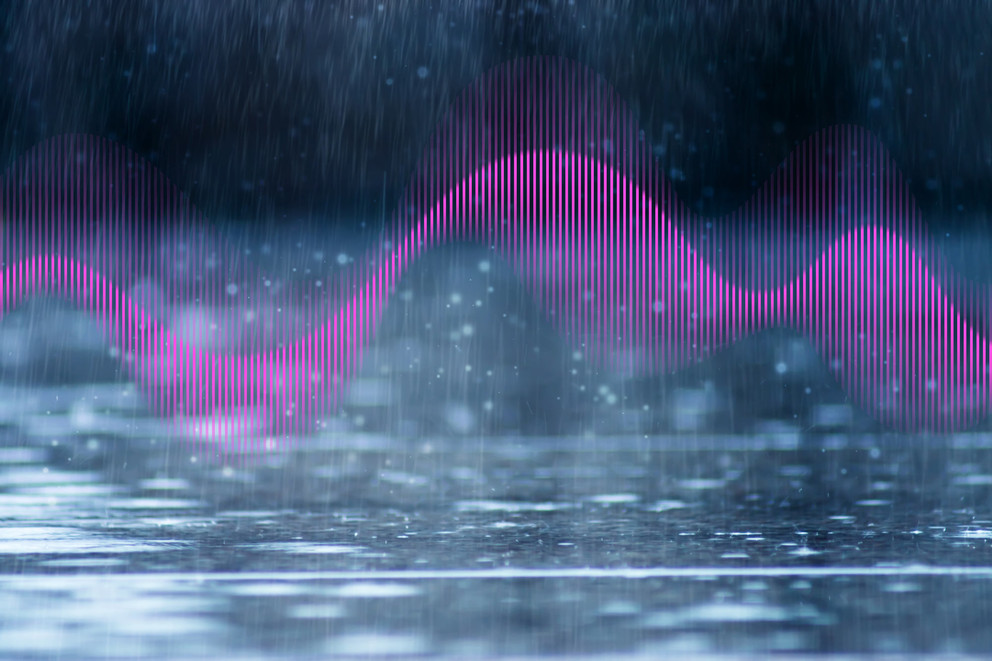
White noise is a popular solution for drowning out unwanted sounds, but there is actually an entire rainbow of sounds. New research from Penn State suggests that "pink noise" might enhance the quality of a person’s sleep.
According to research, Americans sleep an hour less each night than they did in the 1940s. That lack of sleep can have harmful consequences on the human body, including weight gain, heart disease, susceptibility to illness, higher blood pressure and other negative impacts.
To combat the harm that can be caused by sleep loss, Penn State researchers Margeaux Schade, assistant research professor in biobehavioral health, graduate student Gina Marie Mathew, and Orfeu Buxton, professor of biobehavioral health, are collaborating with researchers at the company SleepSpace to develop ways to improve the quality of a night’s sleep.
In a forthcoming article in the journal Nature and Science of Sleep, the researchers examine the effects of “pink noise” as a way to improve the quality of sleep. Prior research suggests that pink noise might increase the brain waves associated with deep sleep. The article will be available online on July 10.
Many people are familiar with white noise: noise that covers the full range of human hearing at equal intensity, like static from a radio or analogue television set. Pink noise, by contrast, is more intense at lower frequencies, resulting in a deeper sound, like steady rain.
Every night, humans go through each sleep stage multiple times including light sleep, deep sleep, and rapid eye movement (REM) sleep. During deep sleep, slow brain-wave activity can be detected that differs from brain-wave activity at any other time, whether people are waking or sleeping. Deep sleep may be the key to a good night’s rest, according to the researchers.
Schade said that deep sleep has previously been linked to health benefits for the body and mind, including quicker healing, better attention, less pain, and greater empathy.
“During deep sleep, the brain clears toxic metabolites which, if allowed to accumulate, contribute to the neurodegeneration associated with aging,” Schade said. “As people age, we also get less deep sleep. This is especially true in 2020 when getting a good night’s sleep is harder than it has been for generations. Daily stressors, particularly those in our current pandemic environment, can make it challenging to get adequate, high-quality sleep without additional support.”
According to Buxton, there could be several potential benefits of this approach to improving sleep.
“We’re all pretty personally familiar with how noise can disrupt our sleep, but there is strong evidence that specific sounds can enhance our sleep,” Buxton said. “Science has not fully uncovered how to harness the power of sounds to consistently induce or sustain sleep. The brain is always listening. Our results show how the sleeping brain responds in the moment to sounds. This suggests we might be able to further develop acoustic methods to improve sleep for everyone.”
By exposing study participants to pink noise during deep sleep cycles, the researchers were able to increase the percentage of time that participants spent in deep sleep.
This increase was seen compared to nights without any sounds and nights when participants were exposed to disruptive noises like alarms while in deep sleep.
"Encouragingly, presenting pink noise at the correct time and intensity did not degrade performance the way disruptive noises did,” Mathew said. “This means that future technology could harness the ability of pink noise to enhance sleep quality without impairing our functioning the next day."
Buxton said the findings suggest that using pink noise to increase restorative sleep may be possible. At this point, the collaboration between these researchers and the researchers at SleepSpace has resulted in two publications and a funded grant. Perhaps a research-validated better night’s sleep is not too far away, said Buxton.
“We hope that this research will help identify how sounds can improve the quantity and quality of restorative sleep to sustain brain health,” Buxton said. “Better sleep could lead to a healthier, more attentive, more empathetic populace.”